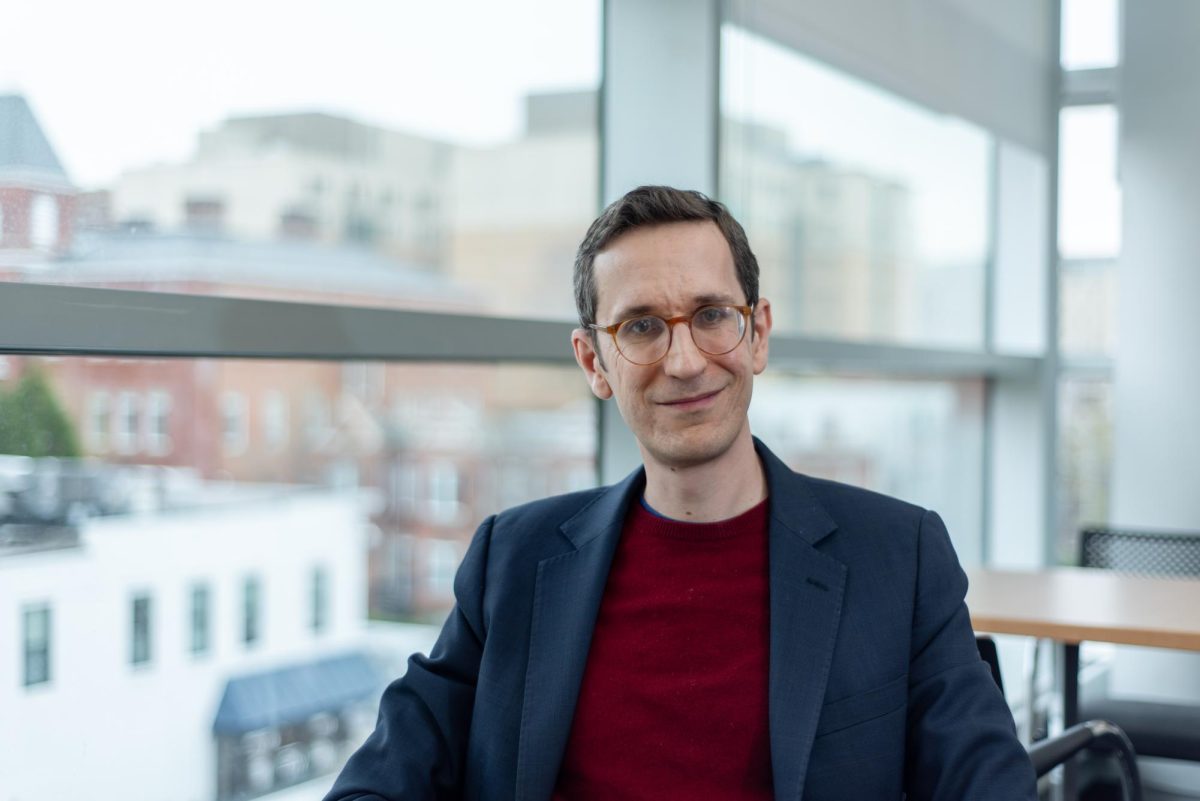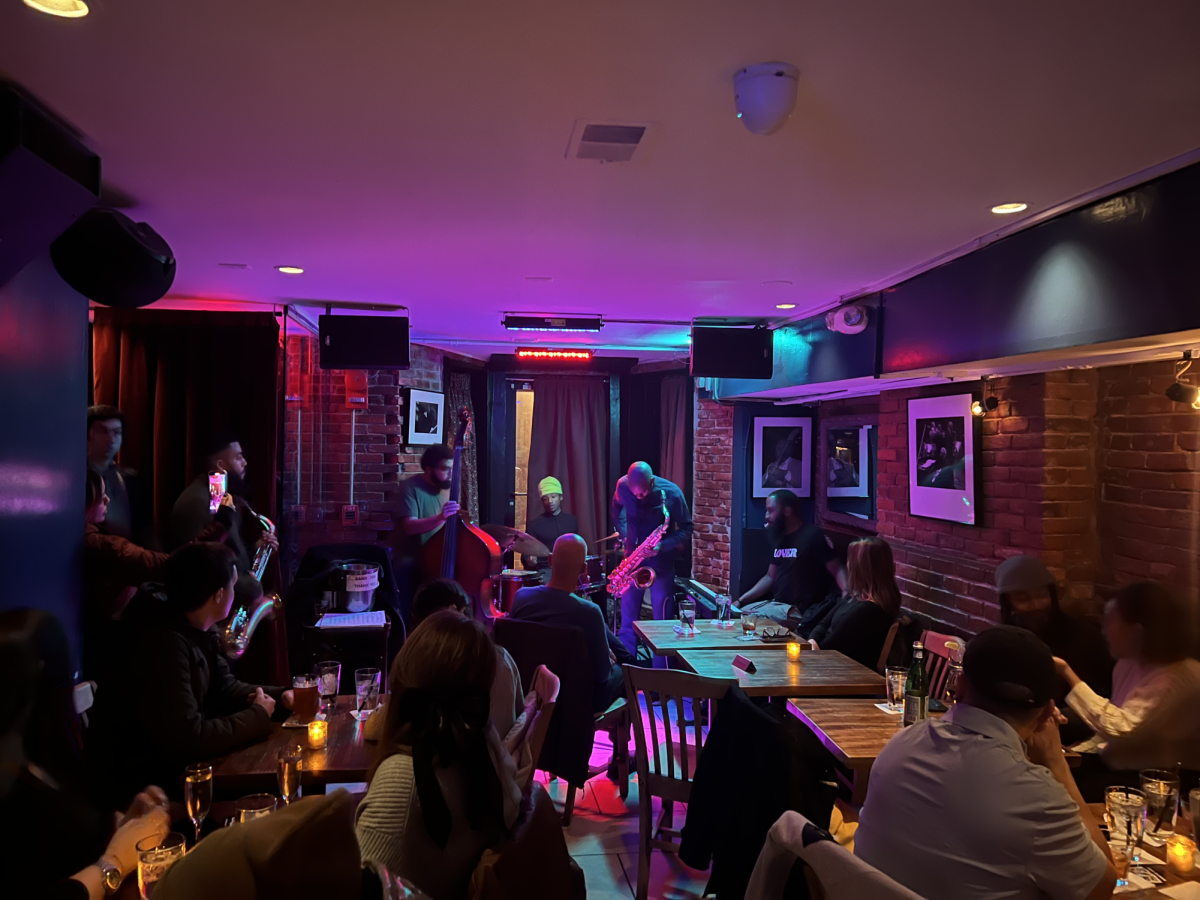Readers’ pick: Timothy Shenk
Timothy Shenk views the history of the United States as a series of action-packed stories.
Shenk calls himself a “dork” who has pored over American political history since he was a teenager. Now an assistant professor of American political history at GW, he sees each of his courses as a book and each meeting as a chapter of the U.S.’ historical narrative.
“Having the class be broken up like that, I think it gives it a little narrative dynamism because you can be like, ‘Oh, okay, we’re at this point in the story,’” Shenk said. “It gives it structure, but it also allows it to be a conversation.”
Shenk, an author of three books on political history, understands that the typical 100 pages of reading he assigns per class can be cumbersome. But he makes the workload worth it through his sheer childlike enthusiasm for the subject, jumping for joy as he breaks down Clarence Thomas’s memoir and Barack Obama’s 2004 Democratic National Convention speech.
“If you can’t make this stuff exciting, you don’t belong here,” Shenk said.
It’s fitting that Shenk tries to make students fall in love with history — he said he gave his GW job talk on Valentine’s Day 2020, and got offered a position a week later. Shenk said the declining state of the tenure-track job market for historians means he knows most of his students probably won’t become history professors, or even take another history class at GW.
But that doesn’t take away from his energy for the class. If anything, he said it’s something he appreciates. He tailors his classes toward topics that he feels will be most salient for students, like “Barack Obama’s America” and “American Conservatism.”
“It’s great to see students who might never take another history class or might have had really bad experiences with their history classes, try and do something good for them,” Shenk said.
Shenk is on paternity leave this semester, which almost disrupted the end of his last semester. He cut off his seminar on a Thursday last December to go pick his wife up from the hospital after she gave birth the day before.
“I was able to make it back in time to deliver the last lecture for my intro class,” he said.
Shenk said he loves his ability to design his classes from the bottom up as a professor. He approaches his study of the country’s rich historical fabric by viewing the past as an ever-changing series of debates.
“One definition of history is an argument without end, which means this endless argument, it’s an endless opportunity to think about the world as it’s presented to you,” Shenk said. “The past is the same, but the questions we ask it are always changing.”




